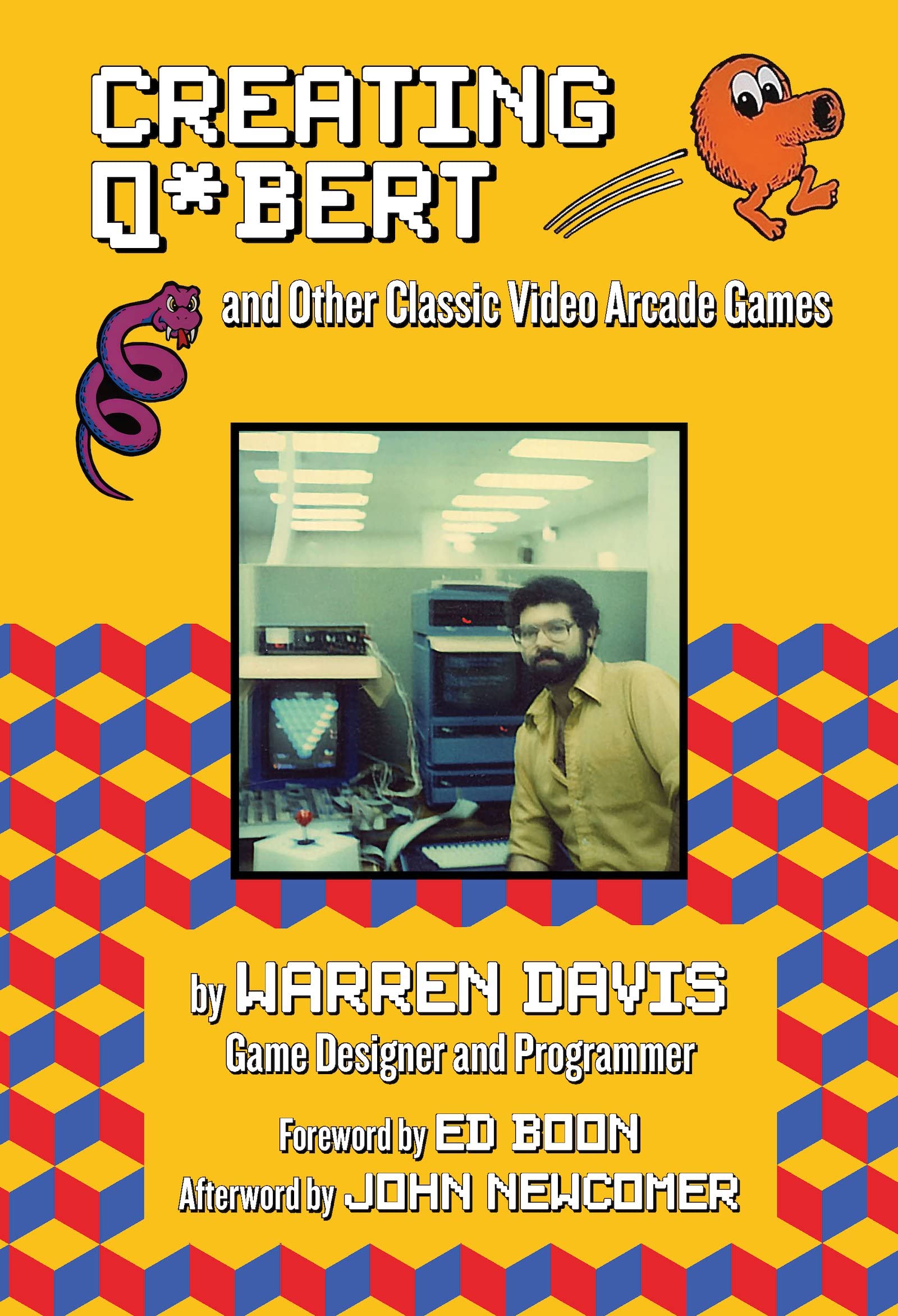 Story: The designer/programmer behind the 1982 arcade hit Q*Bert discusses how he got into computer programming and then into game design after being hired at the very young video game division of legendary Chicago pinball manufacturer Gottlieb. A free-wheeling work environment give him the freedom and time to develop the graphics and game play concepts that led to the highly marketable hit game, but massive changes in the industry meant that he didn’t always have that kind of environment.
Story: The designer/programmer behind the 1982 arcade hit Q*Bert discusses how he got into computer programming and then into game design after being hired at the very young video game division of legendary Chicago pinball manufacturer Gottlieb. A free-wheeling work environment give him the freedom and time to develop the graphics and game play concepts that led to the highly marketable hit game, but massive changes in the industry meant that he didn’t always have that kind of environment.
Review: When I was a ten-year-old kid more in love with “cute” games than with shoot-’em-up games, the summer of Q*Bert’s arrival in the local arcades was practically a flashpoint memory. Even when I wasn’t playing the game, the character stuck with me enough that drawings of him started to fill up the margins of my school notebooks that fall. As much fun as the game was, I’m not sure anyone gives Q*Bert enough credit for scoring an important first: the appearance of the character was unified in just about all of its marketing, something that couldn’t be said of Pac-Man or even Mario at that stage. That a ten-year-old could draw him was a bonus.
So it’s hard to be completely objective here with Warren Davis’ autobiographical stroll down read-only memory lane. Whether it’s his first exposure to computers and programming or the thinking behind his various career moves, it’s easy to identify with and relate to Davis’ attempts to challenge both his technical and creative instincts. When a mid-1980s move to Williams Electronics results in a Red Dawn-inspired game that ends up being cancelled, it’s easy to sympathize with him deciding on another career change. It’s easy to feel the crushing disappointment of Gottlieb, ahem, Mylstar’s Us vs. Them not getting a coveted showcase slot at an arcade trade show. Even if you have no experience of the fields of Davis’ expertise, he conveys very well the personal and professional disappointments in a way that anyone can grasp.
And when things go well, you can feel that too. Despite the title of the book, Q*Bert has been created, marketed relentlessly to arcade operators and impressionable ten-year-olds alike, and is in the rear view mirror by the time you’re halfway through the book; a lot of the book is about trying to find the creative freedom that led to Q*Bert happening in the first place. There are some disappointing near misses. That’s relatable too. That creative resurgence happens in the 90s with the advent of digital image capture technology and games such as Terminator 2 and the Aerosmith-based game Revolution X. (I was delighted to see Davis not only mention Targa TIPS+, a hardware/software combo with which I was very well acquainted from early in my broadcast career in the ’90s, but explain very clearly what was going on under the hood that made it innovative.)
And just in case you hadn’t already picked out the life lessons the author learned along the way, there’s an afterword by John Newcomer, creator of Joust, to point it all out to you as bullet points. (There’s also a foreword by Ed Boon, creator of Mortal Kombat. Davis may have felt like he was working away in obscurity for most of the story, but his work earned him some high profile fans. And, you know, some fans who were wide-eyed, Q*Bert-loving ten-year-olds.
Year: January 11, 2022
Author: Warren Davis
Publisher: Santa Monica Press
Pages: 264

